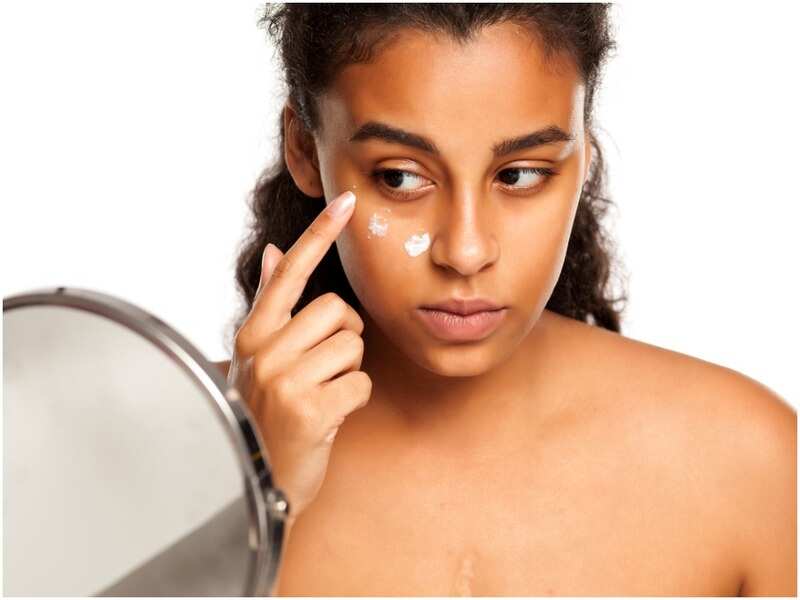
Experts say that apart from age and the environment we live in, there is another factor that leads to dry skin. Dr Rinky Kapoor, consultant dermatologist, and dermato-surgeon, says, “Frequent use of sanitizing products, soaps chemical cleansers, hot water baths, inadequate moisturizing, and hand washes leads to dry skin. It could also be due to factors like genetics, family history, and medical conditions such as atomic dermatitis, hypothyroidism, diabetes, kidney, and liver diseases, psoriasis. Medications for high blood pressure, high cholesterol, and allergy can also cause the loss of moisture from the skin leading to a taut and tight feeling on the surface.”
Itchy dry skin can get a lot of relief from an oatmeal bath or baking soda bath. Stir chopped oatmeal into warm water for preparing the bath.
Use virgin cold-pressed coconut oil as it is rich in saturated fatty acids that can hydrate and smooth the skin without clogging the pores.
Include foods like blueberries, tomatoes, carrots, beans, peas and lentils in your daily diet.
Use sunflower seed oil as a night time moisturizer.
“It is important to identify and analyse your skin type and troubleshoot the dry skin problem before you change your skin care products. Observe how your skin responds to a product rather than just going by the advertisements.The right combination of the skin care products can protect the skin from dryness and give you the radiant glowing look forever,” says Dr Kapoor.
She says that little changes in the products that you use and the way you use them can help easily get rid of dry skin:
- Change the pump bottle skin moisturizers to jars and tubes moisturizers. Look for ingredients that attract moisture and hydrate the skin such as ceramides, glycerine, sorbitol (humectants), hyaluronic acid, lanolin, silicone, and mineral oil.
- For too dry a skin, use emollients that contain linoleic, and lauric acids. The thicker the moisturizer the more effective it will be.
- The best time to use moisturizer is when skin is still damp from washing or bathing. This practice will help you lock in the moisture to the skin and prevent clogging of the pores.
- Use petroleum jelly on lips, elbows, heels, and knees. The right way to do this is to rub is little petroleum jelly on your hands and massage the dry areas till your hands don’t feel greasy.
- Switch hot water baths to quick 5-10 minutes lukewarm water baths. This will help retain some of the natural oils on the skin.
- If you live in places where winters are harsh, use a humidifier (level set to 60 per cent) to help the skin reload moisture.
- Use soap free and paraben free cleansers that contain natural mineral oilsand steer clear of deodorizing soaps and alcohol toners and cleaners.
- Do not scrub your skin with a towel or use the washcloth and bath sponge to roughly exfoliate the dry skin. Go for the light touch, pat or blot the skin dry when using the towel.
- Do not scratch the skin.Moisturize if you feel the urge to scratch.
- Wear a skin suitable sunscreen in all weathers. People with dry skin should use cream based sunscreens and reapply every three hours.
- Avoid wearing wool and synthetic fibres that come in direct contact with the skin. Your inner wear should be made of cotton or natural fibres.
- Use an oil-based night cream before going to bed. Look for non-comedogenic oils suchas avocado oils, primrose oil, shea oil, almond oil, and mineral oil as ingredients.
- Use a hand cream regularly and wear gloves if you go outside.
- Do not wear wet socks, clothes, and gloves. They can irritate your skin, cause dehydration, and even lead to sores.
- Use gentle exfoliants on the feet once a week and moisturize your feet using glycerine and heavy foot creams before going to bed.
- Use gentle cleansers and detergents for your cloths.
- Last but not the least, drink water at regular intervals









